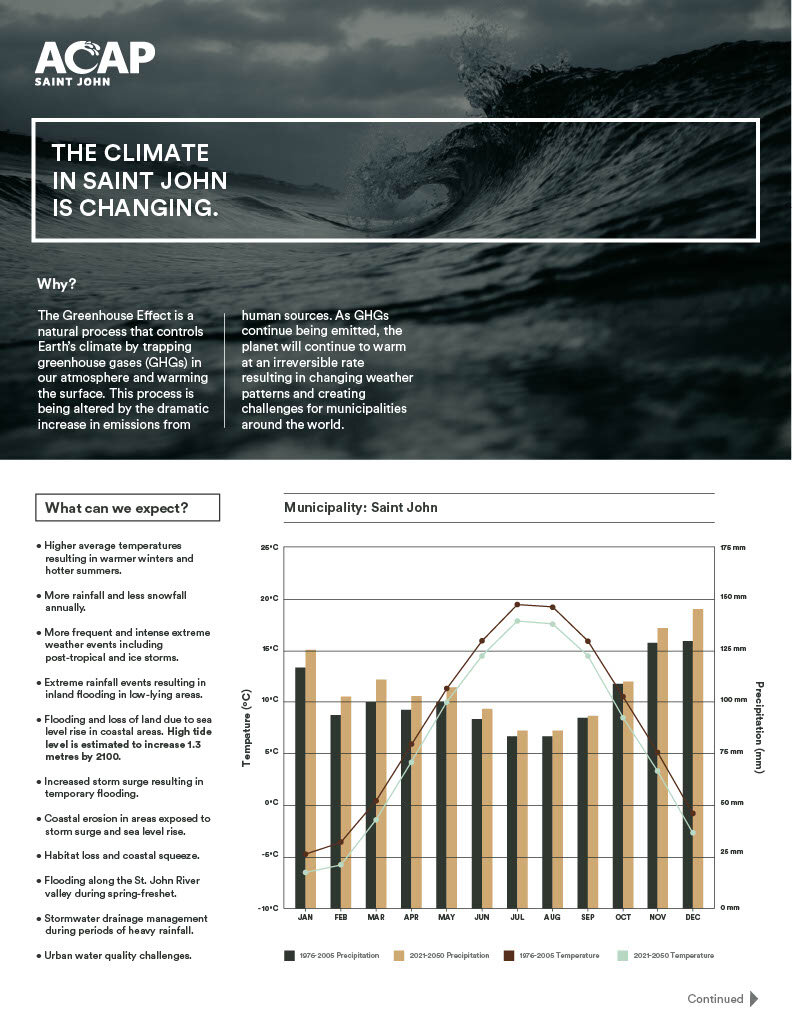
CLIMATE CHANGE IMPACTS
Climate CHange Impacts
In Canada, the rate of warming approaches twice the global average. Temperatures have increased by 1.3 degrees Celsius since 1948 and are projected to hit a 2 degree Celsius rise by 2050 and 4 degree Celsius rise by 2080 (International Council for Local Environmental Initiatives Canada, n.d.). Even with efforts to reduce GHG emissions (mitigation), climate change is already being felt in New Brunswick in the form of rising temperatures, sea level rise, higher intensity precipitation events, increased severity of inland and coastal flooding, accelerated rates of coastal erosion, and land loss that will continue to have negative impacts for the City of Saint John if no adaptation occurs (NBDELG, 2014).
A combination of high tide and storm surge in Saint John on October 29, 2015 gave an indication of where coastal infrastructure is already at risk to flooding and erosion. The image above shows waves crashing over the rocks and into the beach volleyball courts next to Loyalist Plaza. Coastal infrastructure will be at greater risk in the future due to sea level rise which will contribute to higher tide levels over the rest of this century and more frequent storm surges and extreme weather events.
What does this mean for Saint John?
Climate Change presents Saint John with generational challenges which will require our communities to question their established structures and ways of knowing. Working collaboratively to adapt to Climate Change, therefore, presents unique and exciting opportunities for the City to not only improve the quality of life for its residents but to build a growing community of resourceful and compassionate global citizens.
Understanding how Climate Change will impact the City of Saint John is the first step in developing holistic solutions for adaptation. ACAP Saint John’s background report: Understanding Climate Change in Saint John, includes projections for future temperatures, precipitation, extreme weather, sea level rise, and water quality impacts the Saint John area.
Climate Change Work at ACAP Saint John
ACAP Saint John’s Climate Change Team has been working on addressing climate change in Greater Saint John since 2018. Follow the links for more information on each project:
References
International Council for Local Environmental Initiatives (ICLEI) Canada. (n.d.). Changing Climate, Changing Communities: Guide and Workbook for Municipal Climate Adaptation. ICLEI: Local Governments for Sustainability, p. 1-94.
NBDELG. (2014). New Brunswick’s Flood Risk Reduction Strategy. Government of New Brunswick


